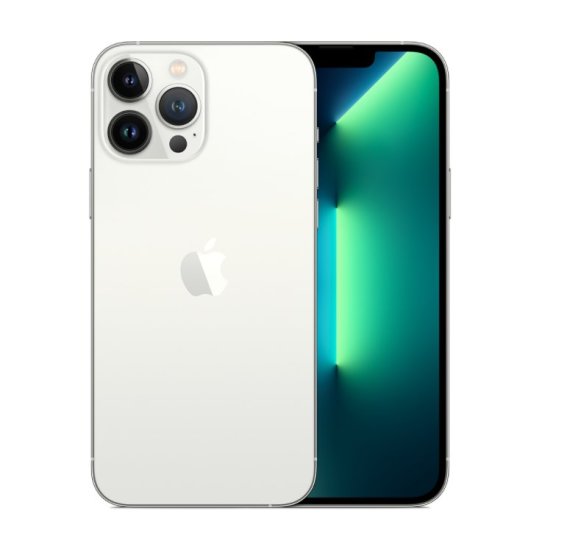When a problem arises, people often focus only on that one problem. And when the problem is solved, people think that all problems are solved. If it's a personal matter, this isn't too bad either. However, it is different when it comes to business-related issues. If the underlying cause is not addressed, similar problems often occur.
Recently, two problems have arisen with Apple's iPhone. In one case, after updating the iPhone to the latest operating system, 80% of the battery was lost. This issue was mainly raised by iPhone 12 and iPhone 13 users.
The start of the incident is a feature that was first applied to iOS 15.4. This feature allows users to unlock the device by facial recognition while wearing a mask. This feature itself is useful. Due to the COVID-19 outbreak, wearing a mask has become mandatory.
But soon after users update their operating system, rumors have emerged that the iPhone's battery drains more than twice as fast as usual. GSM Arena, an IT professional media, reported that 80% of the battery was consumed within two hours when only the basic app was used. According to Apple, "the battery may drain rapidly for 48 hours after the operating system is updated." The explanation is that this is a temporary phenomenon, not an error caused by this update.
In reality, it was more of an error caused by a new feature. Amid the ongoing controversy, Apple released a new updated version of iOS 15.4.1 on the 31st of last month. The update was uploaded about two weeks after the release of the previous version. In an error-fix notice released along with the update, Apple stated "the battery may drain unexpectedly and quickly after updating to iOS 15.4."
Apple doesn't usually admit errors when they happen, but they fix them quickly. This case is a case in which Apple acknowledged and corrected the mistake fairly quickly. Nevertheless, Apple again admitted the mistake two weeks later. This shows that Apple's user policy remains stubborn.
There was also another problem. Kakao Mobility introduced a function to restrict the display of caller IDs to protect passengers' personal information. However, this feature did not work on some iPhones. Since this error occurred after the iOS 15.4 update, it is presumed to be an update-related error. When a user calls a taxi driver in the 'Kakao T' app, exposure of the caller number is automatically restricted, but Apple seems to have designed the update without considering this feature.
In the end, Kakao Mobility announced through a notice, "According to Apple policy, the 'secure call function' that does not display the customer's phone number will not be provided after iOS 15.4." There was no action or explanation for this issue in Apple's update either. Since Korea is a relatively small market, Apple seems to be quietly moving on to this issue.
These two issues that popped up this time may seem trivial. The battery error was fixed two weeks later with an update. Privacy disputes are likely due to Apple's policy, which is mainly driven by US laws. But what is the underlying problem? It's just that Apple doesn't listen carefully to users' opinions.
When Steve Jobs led Apple, Apple had a principle: 'Customers don't know what they want, so Apple must lead the way.' It is also true that this principle of Apple has revolutionized the smartphone industry. However, Apple also caused major accidents such as 'antenna gate' and 'battery gate'.
The principles that stand out when an industry develops rapidly are not necessarily successful even when the industry is stable. Looking at the battery incident that occurred this time, I thought that Apple's user policy should be changed to be more open. If Apple doesn't change in a way that listens more carefully to consumers' needs and reflects them, bigger problems will continue to arise. Apple's user policy must change.
 |
김창훈 기자 changhoon8@gamevu.co.kr
<저작권자 © 게임뷰, 무단 전재 및 재배포 금지>

 넷마블, '나 혼자만 레벨업: 어라이즈' 체험기
넷마블, '나 혼자만 레벨업: 어라이즈' 체험기




![[현장] 김형태 대표 여의도에 강하! 시프트업 ‘스텔라 블레이드’ 행사](/news/thumbnail/202404/32567_86823_5854_v150.jpg)
![[포토] 카카오게임즈 '아키에이지 워', 대만 쇼케이스 성료](/news/thumbnail/202404/32529_86732_3127_v150.jpg)
![[포토] '오버워치 챔피언스 시리즈(OWCS)' 아시아 본선에 나서는 한국팀들](/news/thumbnail/202404/32461_86464_3811_v150.jpg)
![[포토] X-PLANET, 첫 단독 팬미팅 앞둔 ‘후뢰시맨’ 배우 입국 현장](/news/thumbnail/202404/32440_86387_5027_v150.jpg)



